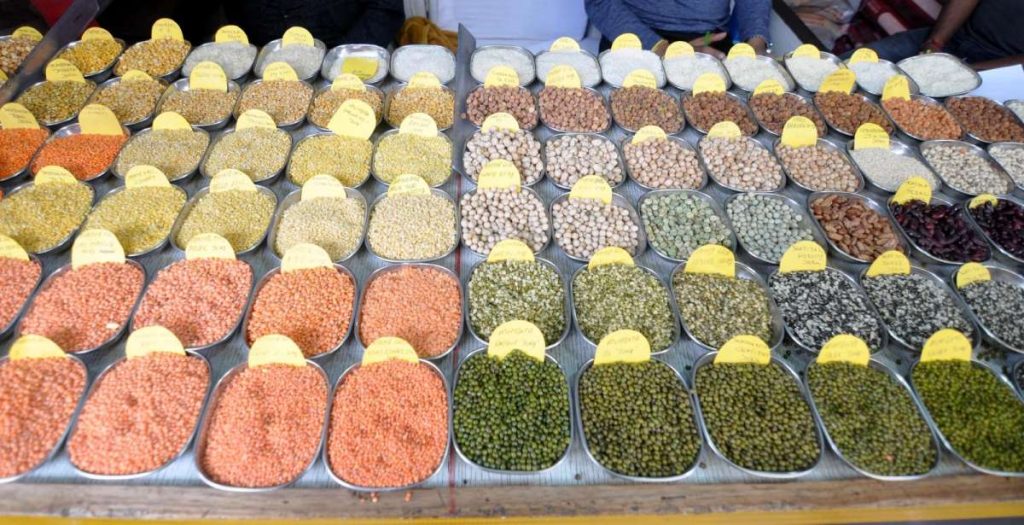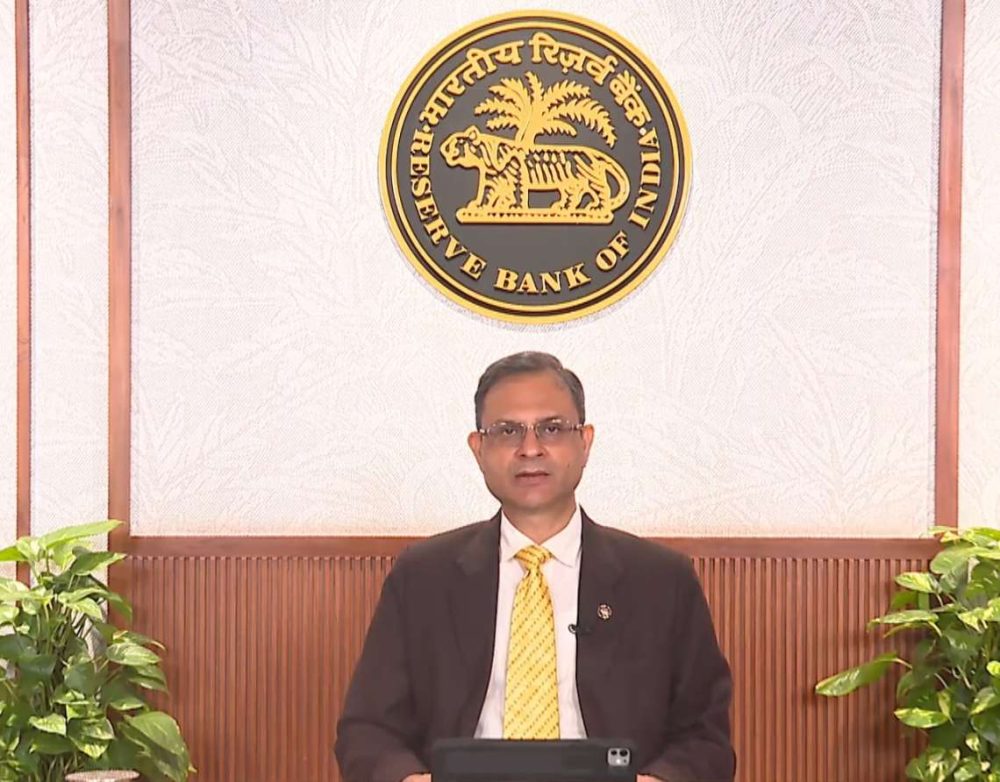The government has been taking various steps to control food inflation which is reflected in the CPI inflation coming down to a 9-month low of 4.85 per cent in March….reports Asian Lite News
As part of its stepped-up vigil to bring down prices of pulses, the Government has warned traders that anyone found indulging in forward trade of pulses would be dealt with firmly in accordance with the provisions of the Essential Commodities Act.
The message has been clearly conveyed to all traders during a series of interactions held by Secretary, Department of Consumer Affairs, Nidhi Khare with representatives of the pulses industry in the run-up to the operationalisation of online stock monitoring from April 15, 2024, according to an official statement issued on Saturday.
At the same time, the Government is also arranging for more imports of pulses from Myanmar to bring down prices in the domestic market through increased availability.
The government has been taking various steps to control food inflation which is reflected in the CPI inflation coming down to a 9-month low of 4.85 per cent in March. However, while the rise in the prices of pulses has slowed, it is still in double-digit figures at 17.7 per cent.
Department of Consumer Affairs has obtained feedback from the industry and inputs from market intelligence relating to pulses and the stock position with various market players have been collated for further verification.
Nidhi Khare also discussed with the Indian Mission in Yangon on issues relating to pulses imports from Myanmar such as import prices in the wake of revised exchange rates and stocks held by importers in Myanmar. The Indian Mission apprised that the Rupee Kyat Settlement Mechanism has been operationalised from January 25, 2024, to simplify trade transactions and to make them more efficient.
The Central Bank of Myanmar released guidelines for payment procedures under the Special Rupee Vostro Account (SRVA) on January 26, 2024. The new mechanism will apply for both sea and border trade and for trade in goods as well as services. Adoption of the mechanism by traders will reduce costs associated with currency conversions and eliminate complexities related to exchange rates by eliminating the need for multiple currency conversations.
Dissemination about the operationalisation of this mechanism among trading communities, especially importers of pulses, is being separately done wherein they are being requested to utilise the Rupee/Kyat direct payment system using SRVA through the Punjab National Bank, the statement said.
The importers and other industry players like millers, stockists, retailers etc have been asked to honestly declare their stock of pulses, including imported Yellow Peas, on a weekly basis on the portal https://fcainfoweb.nic.in/psp/ from April 15.
The States and UTs have also been asked to enforce weekly stock disclosure by all stockholding entities and verify the stocks declared by them. Stocks in warehouses located in major ports and in pulses industry hubs should be verified from time to time and strict action should be taken on stockholding entities found to be reporting false information on the stock disclosure portal.

Retail Inflation Dips to 4.85%
India’s consumer price inflation eased to a 9-month low of 4.85 per cent in March bringing relief to household budgets, figures released by the Ministry of Statistics on Friday showed.
Retail Inflation has come down closer to the RBI’s mid-term target of 4 per cent after which the central bank would be in a position to cut key interest rates to spur economic growth.
The country’s CPI inflation had stood at 5.09 per cent in February and 5.1 per cent in January.
The declining trend in cooking oil prices continued in March with a 11.72 per cent fall during the month. The price rise in spices slowed to 11.4 per cent in March from 13.28 per cent in February.
The inflation in pulses also slowed to 17.71 per cent during the month compared to 20.47 per cent in January.
However, the data shows that vegetable prices shot up by as much as 28.34 per cent in March which remains a pain point for consumers. The prices of cereals also increased by 8.37 per cent during the month.
The consumer price inflation is still above the RBI’s mid-term target of 4 per cent and is the main reason why the central bank has not gone in for a cut in interest rates to rev up growth.
The RBI is keen to keep inflation under control to ensure stability and has held the repo rate steady at 6.5 per cent for seven consecutive times in a row in its bi-monthly monetary policy reviews.
The RBI stated in its monetary policy review on April 5 that it expects inflation to come down to 4.5 per cent in 2024-25, assuming a normal monsoon this year.
Going forward, the inflation trajectory will be shaped by the evolving food inflation outlook. Rabi sowing has surpassed last year’s level. The usual seasonal correction in vegetable prices is continuing, though unevenly, the RBI said.
ALSO READ: PM Modi Turns Gamer ‘NaMo OP’














